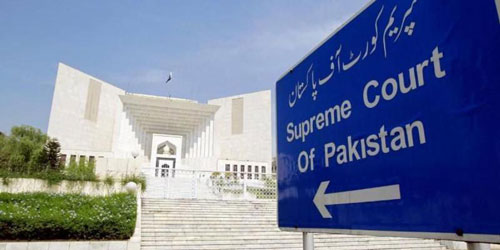The Supreme Court on Tuesday disposed of the suo motu case pertaining to the 2018 regulation of the Pakistan Medical and Dental Council (PMDC) that suggested an award of 20 additional marks to candidates for memorising the Holy Quran by heart to get MBBS or BDS degrees.
On March 29, a three-member bench heard the same case during which Justice Qazi Faez Isa and Justice Aminuddin Khan had ruled that the chief justice of Pakistan (CJP) did not have the power to make special benches or decide its members.
The apex court judges had said that all hearings based on suo motu notices and cases of constitutional significance — under Article 184(3) — should be postponed until they were legislated upon.
However, Justice Shahid Waheed had dissented from the verdict in his minority ruling, saying that judges could not raise objections regarding the constitution of benches because if they do so they would become a complainant and it would no longer be appropriate for them to hear the case.
On March 31, a circular was issued by the SC registrar’s office, followed by a one-page court order, disregarding the directives, and adding that the bench had travelled beyond the case before it, which had prompted Justice Isa to pen a scathing letter to the registrar.
Earlier on Tuesday, a six-member larger bench, headed by Justice Ijazul Ahsan and comprising Justice Munib Akhtar, Justice Sayyed Mazahar Ali Akbar Naqvi, Justice Muhammad Ali Mazahar, Justice Ayesha Malik and Justice Syed Hasan Azhar Rizvi, was constituted to hear the case at 2pm.
During the hearing — which lasted a total of five minutes — the PMDC counsel, Afnan Kundi, contended that 20 additional marks were awarded to students for memorising the Holy Quran up until 2018.










